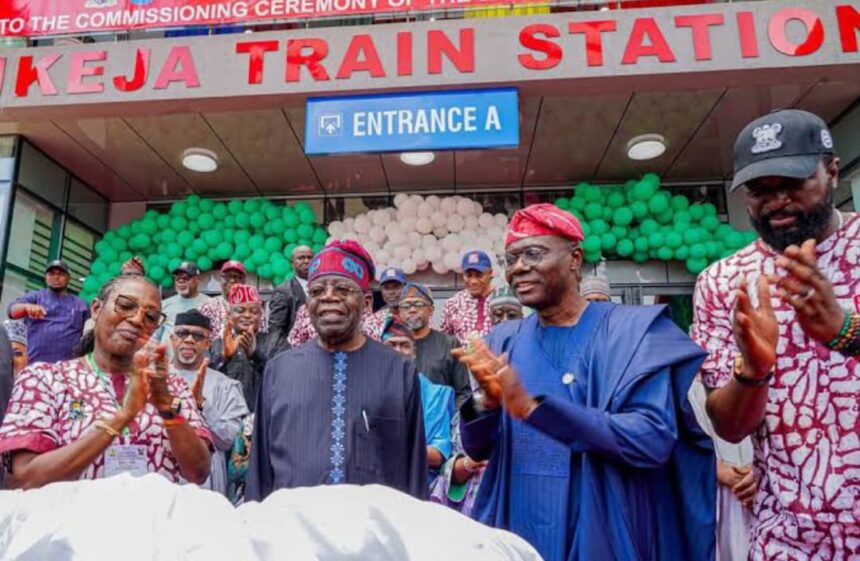Lagos is Nigeria’s economic heartbeat — the city whose energy fuels the rest of the federation. Beyond its crowded streets, chaotic traffic, and rising skyline lies a simple truth: Lagos carries the fiscal weight of the nation.
Take the Value Added Tax (VAT), the country’s main consumption tax. Lagos alone accounts for roughly 60 percent of collections — more than 35 other states combined. Yet when that revenue is shared, Lagos receives only a fraction of what it contributes, while other states reap the benefits.
This fact should silence those who grumble whenever the Federal Government invests in Lagos infrastructure. Complaining that Lagos does not “deserve” special attention is both ill-informed and ungrateful. For decades, Lagos has stripped itself bare to keep Nigeria running. Every dawn, millions of residents hit the road by 5 a.m., driving the commerce, services, and industries that generate the very taxes used to build schools, hospitals, and roads in states far away from Lagos.
To suggest that federal investment in Lagos is misplaced is the civic equivalent of cutting off one’s nose to spite one’s face. If Lagos is allowed to collapse under the weight of neglect, the entire country will feel the shock. When Lagos thrives, Nigeria prospers. When Lagos falters, the federation’s fiscal health deteriorates.
A History of Neglect
Despite being Nigeria’s commercial capital and former political capital, Lagos was for years starved of meaningful federal investment. Population growth surged past 20 million, yet infrastructure failed to keep pace. Roads designed for a few million vehicles are now permanently gridlocked. Drainage systems buckle under rapid urbanisation. Public transport is overstretched. In short, Lagos is overworked, underfunded, yet still expected to sustain the nation.
Take roads as an example. Until the Buhari administration, federal governments did little to address the crumbling arteries leading to the nation’s ports — facilities that generate Nigeria’s second-highest revenue after oil. By contrast, many smaller states enjoy longer stretches of federal highways than Lagos, which has no federal road up to 100 kilometres long. Some states with far less economic significance boast single federal roads of over 200 kilometres.
Why Federal Support Matters
The call for urgent federal intervention in Lagos is not about “special treatment.” It is about strategic national interest. A functional, modern Lagos means higher productivity, more trade, and ultimately, more revenue for the federal purse — revenue that is then redistributed to every state.
Importantly, Lagos is not waiting idly for handouts. The state government has been investing aggressively in transformative projects:
Expansion of the Bus Rapid Transit (BRT) system, easing daily commutes.
Construction of the Blue and Red rail lines, massive undertakings by African standards.
Expansion of ferry services to ease road congestion.
Ongoing investments in healthcare, with new hospitals and upgrades to existing facilities.
Major strides in education, from building new schools to equipping classrooms with modern learning tools.
These are not the actions of a government shirking responsibility. They are evidence of a state determined to modernise itself even while carrying the rest of Nigeria on its back.
But the scale of Lagos’s infrastructure deficit, built up over decades of neglect, is simply too vast for one state to shoulder alone. The logic is straightforward: if an asset generates most of your revenue, you maintain and upgrade it. Neglecting Lagos is not just short-sighted — it is dangerous.
Equity, Not Equality
Those who oppose federal spending in Lagos often demand “equal distribution” of resources among states. But equality is not always equity. A farmer does not water the desert and the river equally; he allocates resources based on productivity and need. Lagos is Nigeria’s revenue river. Strengthening it strengthens all.
The National Interest
Federal investments in Lagos’s roads, bridges, ports, housing, and drainage systems will not serve Lagosians alone — they will serve every Nigerian whose state budget depends on Lagos-generated revenue. This is not charity. It is enlightened self-interest.
Failure to act will widen the cracks in Lagos’s infrastructure until they swallow productivity and drain national revenue. But timely investment will keep Lagos strong — and by extension, keep Nigeria strong.
The verdict is clear: Lagos deserves federal support, not as a favour, but as a necessity. Strengthen Lagos, and you strengthen Nigeria. Ignore Lagos, and you imperil the federation.

